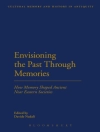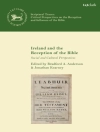We tend to think of state service as the typical male form of work. However, this notion does not do justice to the early history of states and their servants, and it obscures the role of women and gender entirely. Teasing out these entanglements, The state as master shows how early modern state formation was subsidized by ordinary people’s work and how, at the same time, the changing relationship between state authorities and families shaped the understanding of work and gender. This book is both a fascinating story of the hardships of customs official families in small Swedish towns and an innovative analysis of state formation and its short- and long-term effects.
Inhaltsverzeichnis
Introduction: Serving others – serving the state
1. State formation and state administration
2. Servants in the front line
3. Families in service
4. The struggling master
5. His role and hers
Conclusion: Service, gender and the early modern state
Index
Über den Autor
Maria Ågren is Professor of History at Uppsala University, Sweden












